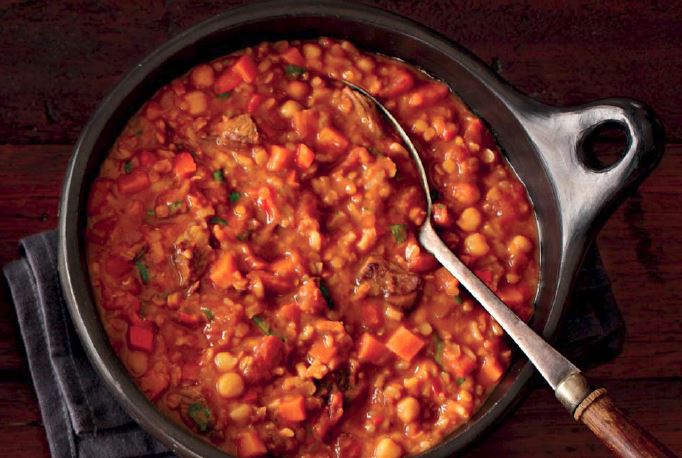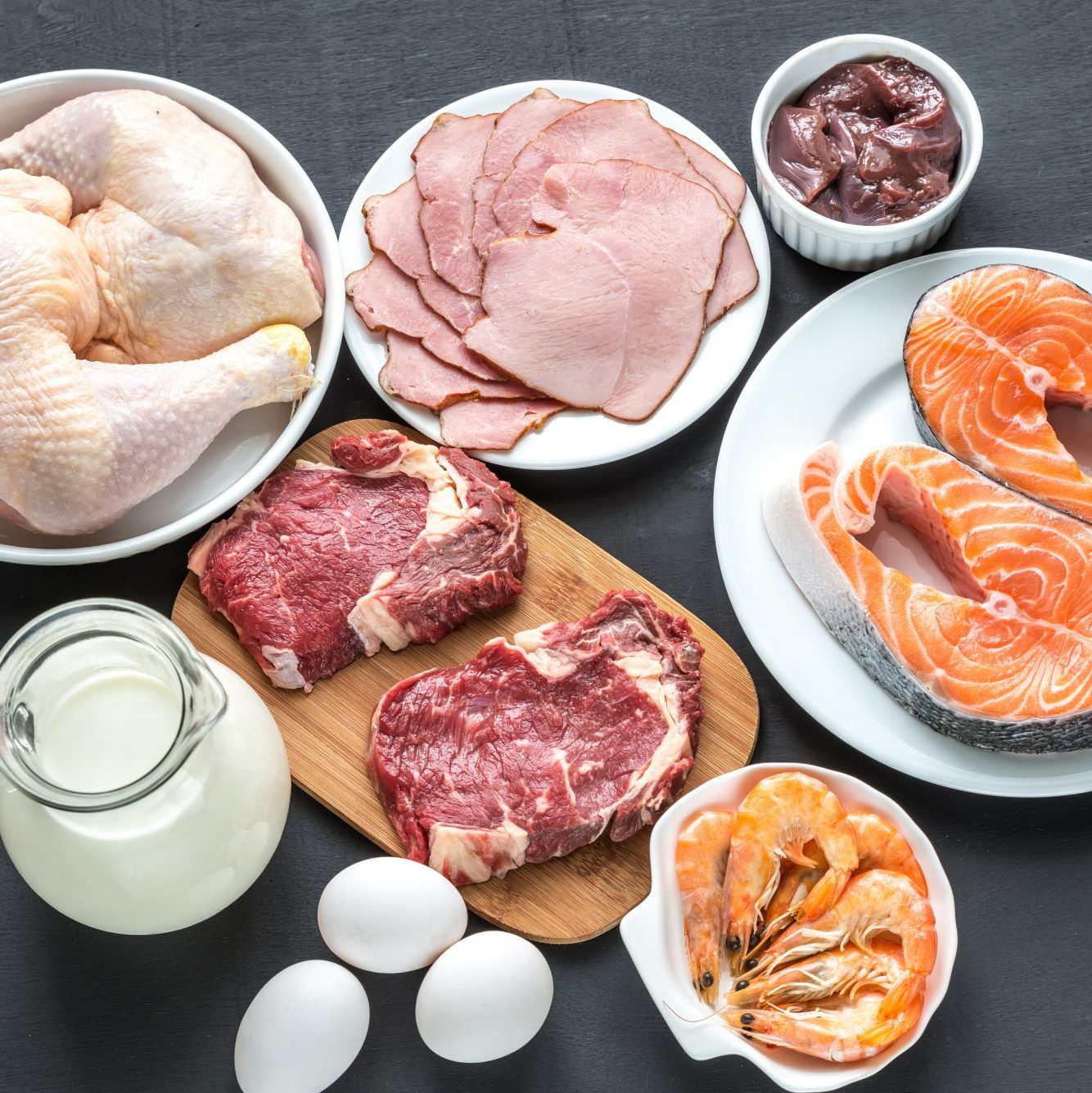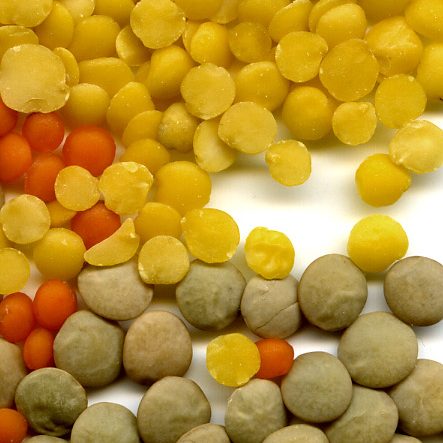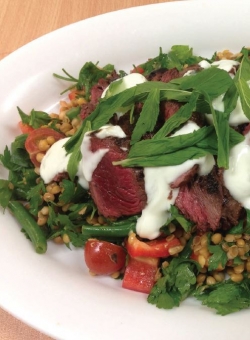Iron is essential for life
Iron is an important mineral found in a range of foods. It helps to transport oxygen around the body, making iron essential for life!
Iron is also important for optimal immune function, providing energy and storing oxygen in our muscles (this is what gives muscles their red colour).
How much iron do I need?
Iron requirements differ by gender and age. Please see the below table for recommended dietary intake per day:
| Age group | Recommended dietary intake (RDI)1 |
|---|---|
| All | |
| 1-3 years | 9mg/day |
| 4-8 years | 10mg/day |
| 9-13 years | 8mg/day |
| Boys | |
| 14-18 years | 11mg/day |
| Girls | |
| 14-18 years | 15mg/day |
| Men | |
| 19+ years | 8mg/day |
| Women | |
| 19-50 years | 18mg/day |
| 50+ years | 8mg/day |
| Pregnant and lactating women | |
| All pregnant women | 27mg/day |
| Lactating women 14-18 years | 10mg/day |
| Lactating women 19+ years | 9mg/day |
Women in their reproductive years have a much higher iron requirement than men, due to monthly menstruation. Women in this life stage can find it difficult to meet their daily requirements with food alone, which means they also have a higher risk of iron deficiency.
Women are advised to have their iron levels regularly checked by their GP, who may recommend further dietary measures or an iron supplement. The RDI for men is much lower than for women in their reproductive years. For example, a man could get his RDI for iron by simply having a serve of wholegrain iron-enriched breakfast cereal, a serve of red meat and handful of nuts in one day.
Remember:
- Iron helps to transport oxygen in the body, making iron essential for life.
- Iron requirements differ by age and gender.
- Women in their reproductive years have much higher iron requirements and as such, should have their iron levels checked regularly by their GP.

Moroccan lentil and chickpea soup recipe
Are you eating a vegetable-based diet and in need of some extra iron? Look no further than this wholesome soup. Cook up a batch and freeze for those days when you don’t feel like cooking.
Symptoms of iron deficiency
- Fatigue
- Lack of concentration
- Increased risk of infection
- Headache
- Pale skin
- Weakness/Dizziness
Who is at risk of iron deficiency?
- Women in reproductive years
- Young children
- Pregnant women
- Vegetarians
- Vegans
Which foods contain iron?
There are two types of iron that we can get from foods:

Iron from animal sources – haem iron

Iron from plant-based sources – non-haem iron
Haem iron from animal sources is absorbed more efficiently and in a different way to non-haem iron.
Animal-based iron sources
| Food | Iron content (per 100g) |
|---|---|
| Chicken liver | 11mg |
| Beef | 3.5mg |
| Kangaroo | 3.2mg |
| Lamb | 2.5mg |
| Salmon | 1.28mg |
| Tinned tuna | 1.07 |
| Pork | 0.8mg |
| Chicken | 0.4mg |
| Snapper | 0.3mg |
Plant-based iron sources
| Food | Serving size | Iron content |
|---|---|---|
| WeetbixTM | 30g | 4.2mg |
| All BranTM | 30g | 3.2mg |
| Kidney beans | 1 cup | 3.1mg |
| Green lentils | 1 cup | 3.0mg |
| Tofu | 100g | 2.96mg |
| Chickpeas | 1 cup | 2.7mg |
| Cooked wholemeal pasta | 140g (1 cup) | 2.3mg |
| Cashew nuts | 30g (20 nuts) | 1.5mg |
| Raw spinach | 1 cup | 1.2mg |
| Rolled oats | 30g | 1.1mg |
| Almonds | 30g | 1.1mg |
| Dried apricot | 30g (5 dried apricots) | 0.93mg |
| Broccoli | 1 cup | 0.86mg |
| Cooked brown rice | 140g (1 cup) | 0.7mg |
| Wholegrain bread | 1 slice | 0.4mg |

Lamb, lentil and tomato salad recipe
Combining both plant-based and animal-based iron sources – this hearty and tasty dinner or lunch will satisfy and nourish.
How can I improve my iron intake?
Some foods can help our bodies absorb iron, while others can inhibit it.
To ensure your iron is being absorbed we recommend that you:
- Eat foods high in vitamin C with foods that contain iron.
- Cook your plant foods to improve the amount of available iron.
- Avoid having tea, coffee or calcium during or directly after having a source of iron.
- Speak to your doctor about any possible dietary interactions with your medications or herbal supplements that could impair iron absorption.
Ensure that you only take iron supplements under the advice of a GP, as too much iron can also be harmful.
Remember:
- Haem iron from animal sources is absorbed more efficiently and in a different way to non-haem iron.
- Some foods can help our bodies absorb iron, while others can inhibit it.
- Only take supplements under the guidance of a GP.
1 Source: https://www.nrv.gov.au/nutrients/iron




